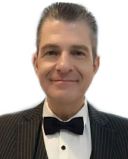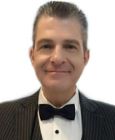Addiction
Prescription Drugs Are Far More Deadly Than Street Drugs
Unethical doctors enable their drug-addicted patients.
Posted April 28, 2014

What do Heath Ledger, Art Bell, Anna Nicole Smith, Sage Stallone, Anna Nicole Smith, Keith Moon, Judy Garland, Dorothy Dandridge, Marilyn Monroe, Elvis Presley and Michael Jackson all have in common? They were high-profile celebrities who died from prescription drug overdoses.
When someone rich and famous dies from a prescription drug overdose, it brings renewed attention to a growing epidemic.
Drug overdose death rates in the United States have more than tripled since 1990 and have never been higher. At least 100 people die from drug overdoses every day in the U.S. More than 36,000 people die from drug overdoses annually and most of these deaths are caused by prescription drugs (1).
Contrary to popular mythology, prescription drugs are more lethal than illegal or street drugs. Prescription drug abuse and addiction kill far more people in the U.S. every year than all illegal drugs combined.
The unprecedented rise in overdose deaths in the U.S. parallels a 300 percent increase since 1999 in the sale of powerful painkillers such as Vicodin and OxyContin. These drugs were involved in 14,800 overdose deaths in 2008, more than cocaine and heroin combined (2).
The misuse and abuse of prescription painkillers was responsible for more than 475,000 emergency department visits in 2009, a number that nearly doubled in just five years (3).
More than 12 million people reported using prescription painkillers non-medically in 2010—that is, using them without a prescription or for the feeling they cause (4).
In 2011, the Centers for Disease Control and Prevention reported that the rate of antidepressant use in the United States rose by 400 percent between 1988 and 2008.
Although doctors prescribe painkillers, sedatives, tranquilizers and stimulants all the time, that does not mean they aren't addictive or dangerous if used the wrong way. An estimated 20 percent of Americans have abused prescription drugs, according to a 2008 government survey. Even without abuse, prescription drugs, if mixed the wrong way or taken under the wrong conditions, can be deadly. The problem is getting worse and, frequently, medical doctors enable their drug addicted patients by frivolously filling prescriptions.
The high-profile murder trial of Dr. Conrad Murray in 2011 brought global attention to the connected problems of prescription drug abuse and medical negligence. Dr. Murray was found guilty of negligent manslaughter in the wrongful death of pop music icon Michael Jackson.
Conrad Murray should have known better than to administer the powerful surgical anesthesia, Propofol, as a sleep aid to Jackson in his home. The misuse of the drug resulted in Jackson’s death. Only anesthesiologists are typically allowed to administer Propofol, and only in controlled hospital settings. The heart rates of patients receiving it are continuously monitored with an EKG machine, which was reportedly not present in Jackson's home.
In addition, ABC News reported that Demerol and OxyContin were found in Michael Jackson's body following his death. Police discovered as many as 20 other powerful prescription drugs in Jackson's Los Angeles home, including Methadone, Percocet, Dilaudid, Vicodin and Fentanyl.
I believe that Conrad Murray, who was paid $150,000 per month by Michael Jackson to be his only patient, allowed greed to compromise his medical training and ethics. Stated differently, Dr. Murray was a highly paid, live-in drug dealer for Jackson.
Celebrities, in particular, are prone to prescription drug abuse because they are not able to venture out into the streets to buy illegal drugs like anonymous addicts. They instead rely on unethical doctors who are either too star-struck to turn down famous clients or simply too greedy to refuse signing the prescriptions (5).
Such doctors sometimes work with so-called pill mills—that is, clinics, such as the one to which Dr. Conrad Murray was linked at his Texas-based practice, which specialize in providing easy access to powerful painkillers. The medical doctors who serve insecure and drug-addicted celebrities are often their worst enablers (6).
However, to what extent is a prescription drug addict who overdoes, even accidentally, responsible for his/her own fate? For example, despite his incredible musical talents, Michael Jackson was also a manipulative and desperate drug addict who reportedly begged Dr. Murray for Propofol and powerful painkillers. Wasn’t Jackson ultimately responsible for what he put into his own body? Similarly, weren’t Elvis and Marilyn Monroe also responsible for what they put into their bodies?
Of course, celebrities are certainly not the only ones susceptible to the powerful, addictive combination of prescription drugs and enabling doctors, as the overdose statistics demonstrate. Codependent relationships between immoral doctors and their drug-addicted patients are increasingly having unintended, tragic consequences.
In combination, prescription drug addiction and medical negligence create a “perfect storm” of corruption, misery and death in the U.S. As a society, we must address these growing and interconnected social problems which have reached epidemic proportions.
Dr. Scott Bonn is a criminologist, TV analyst and professor. He is the author of the critically acclaimed book Mass Deception: Moral Panic and the U.S. War on Iraq. Follow him @DocBonn on Twitter and Doc Bonn on Facebook.
References
(1) CDC. Vital Signs: Overdoses of Prescription Opioid Pain Relievers—United States, 1999-2008. MMWR 2011; 60: 1-6.
(2) Ibid.
(3) Substance Abuse and Mental Health Services Administration. Drug Abuse Warning Network: selected tables of national estimates of drug-related emergency department visits. Rockville, MD: Center for Behavioral Health Statistics and Quality, SAMHSA; 2010.
(4) Substance Abuse and Mental Health Services Administration. Results from the 2010 National Survey on Drug Use and Health. Volume 1: Summary of national findings. Rockville, MD: Substance Abuse and Mental Health Services Administration, Office of Applied Studies; 2011.
(5) Crime Library http://www.crimelibrary.com/notorious_murders/celebrity/celebrity_addic…
(6) Ibid.




